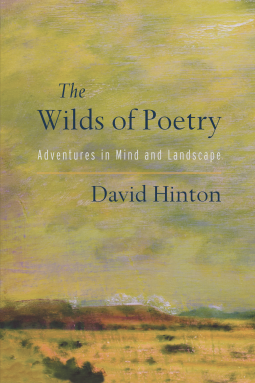
The Wilds of Poetry
Adventures in Mind and Landscape
by David Hinton
This title was previously available on NetGalley and is now archived.
Send NetGalley books directly to your Kindle or Kindle app
1
To read on a Kindle or Kindle app, please add kindle@netgalley.com as an approved email address to receive files in your Amazon account. Click here for step-by-step instructions.
2
Also find your Kindle email address within your Amazon account, and enter it here.
Pub Date Jul 25 2017 | Archive Date Jul 25 2017
Shambhala Publications, Inc. | Shambhala
Description
Henry David Thoreau, in The Maine Woods, describes a moment on Mount Ktaadin when all explanations and assumptions fell away for him and he was confronted with the wonderful, inexplicable thusness of things. David Hinton takes that moment as the starting point for his account of a rewilding of consciousness in the West: a dawning awareness of our essential oneness with the world around us. Because there was no Western vocabulary for this perception, it fell to poets to make the first efforts at articulation, and those efforts were largely driven by Taoist and Ch’an (Zen) Buddhist ideas imported from ancient China. Hinton chronicles this rewilding through the lineage of avant-garde poetry in twentieth-century America—from Walt Whitman, Ezra Pound and Robinson Jeffers to Gary Snyder, W. S. Merwin, and beyond—including generous selections of poems that together form a compelling anthology of ecopoetry. In his much-admired translations, Hinton has re-created ancient Chinese rivers-and-mountains poetry as modern American poetry; here, he reenvisions modern American poetry as an extension of that ancient Chinese tradition: an ecopoetry that weaves consciousness into the Cosmos in radical and fundamental ways.
Advance Praise
Available Editions
| EDITION | Other Format |
| ISBN | 9781611804607 |
| PRICE | $24.95 (USD) |
| PAGES | 336 |
Average rating from 4 members
Featured Reviews
A great collection of essays and poetry. Really well done.
 Joseph S, Reviewer
Joseph S, Reviewer
The Wilds of Poetry: Adventures in Mind and Landscape by David Hinton is an exploration of American nature poetry and its evolution in language. Hinton is a writer and translator who has produced a body of work exploring the weave of consciousness and landscape. This exploration is informed throughout by the insights of ancient Chinese culture; and it has primarily taken the form of translation, which he uses as a way to make contemporary poetry that operates outside the limitations of self-identity and the Western intellectual tradition.
Hinton Starts with Henry David Thoreau's trip to climb Mount Katahdin in Maine and Thoreau's enlightenment in nature. He explains and uses the examples of several poets from Thoreau forward to modern writers. It is the East versus West in thinking and writing that present the issue of Poetics between the two writings and culture. America is the setting for the poetry and provides, in many instances, completely untamed wilderness: Mount Katahdin for Thoreau and the American West for others. Western writers from earlier ages were tied to the earth through the Biblical interpretations and taking dominion over the earth. This meant everything from protective stewardship to plundering nature. The Eastern view is much different in the placement of man in nature. Man is part of nature; it is not something man comes into. The Western view may also have been contaminated by man's separation from nature. We live in cities and see nature as something visited in parks and zoos. The Eastern Zen and Taoist views are different.
Another aspect is in the writing itself is that the Chinese used symbols instead of words to describe ideas, places, and objects and it does so without the use of punctuation. It does better and more concise job of conveying meaning than words. A picture is worth a thousand words, so to speak. The preciseness presenting a complete picture with a minimal amount of symbols was a goal and it was taken to its most extreme form in very short poems, the Japanese haiku, for example. If the reader is familiar with Jack Kerouac's Dharma Bums he or she will recall Japhy (Gary Snyder) explaining translation to Ray (Kerouac) using "Cold Mountain". Hinton does the same in a more scholarly style and depth. It is difficult, if not impossible, to accurately translate the poems for Chinese or Japanese and still convey the meaning and simplicity of the original.
Hinton uses several poets to show various methods of reconciling Western (American) poetry with Eastern thought or vision. He presents his thesis and explains it in detail and follows up with several of that poet's works to support the essays. Overall, this is an informative work for those interested in the evolution of American nature poetry or Eastern poetry and the merger of both. The different styles used by the several poets shows, in the spirit of Cold Mountain, that “There are many paths to the top of the mountain, but the view is always the same.” Well done and an informative book on and about poetry.
Available July 25, 2017





